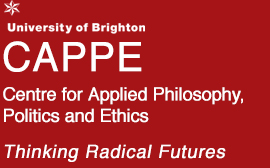6th Feb 2018 6:30pm-8:00pm
Edward Street Lecture Theatre

Following Obama’s election in 2008, much discussion focused on the possibility of a post-racial society, a notion and narrative of progress that views racism as having been overcome and America having become colourblind. Images of Obama and African-American supporters were often juxtaposed with images of the bad old days of Klansmen burning crosses and police using dogs and water hoses against African-Americans who crossed the colour line and fought for civil and voting rights. In Britain, we saw an outpouring of congratulatory statements and articles celebrating America’s overcoming of its ‘race problem’, many of which included the same images used circulated in the American press and interviews with members of the civil rights generation. Such images and references obscured not only continuing systemic racism and inequality in America, but also the revival of the Klan and wider far-right and increase in racist attacks as reported by the Southern Poverty Law Center and FBI. More recently, we have seen a pattern of police violence against African-Americans as well as high profile white supremacist attacks such as in Charleston in 2015, and a further revival of the far-right, increase in hate incidents, emergence of the so-called ‘alt-right’ and mainstreaming of white nationalism in the context of Trump’s populist and racialised, even racist, campaign and subsequent election. While all of these challenge the post-racial thesis, they also rely on and deploy it to construct notions of white (and male) victimization predicated on a reversal of the racial order that they are fighting against and attempting to reverse (‘Make American Great Again’/’Make America White Again’). In Britain, which always saw itself as ‘less racist’, we have seen a backlash against multiculturalism, an increasing normalisation and mainstreaming of scapegoating racism and xenophobia, racialised nationalism, race vs class divide and rule, and nostalgia for empire, informing and being played out through Brexit. We have also seen an increase in hate incidents and far-right threats like in the US post-election. This talk will look at the mainstreaming and normalisation of racism and revival of the far-right in the contemporary US in relation to the ‘past-racial’, Brexit and American racism and the far-right historically.
Aaron Winter is Senior Lecturer in Criminology at University of East London. At UEL, he is a member of the Terrorism and Extremism Research Centre (TERC), Centre for Human Rights in Conflict (CHRC) and Centre for Migration, Refugees and Belonging (CMRB). Prior to UEL, he taught at Abertay University, the University of Sussex and the University of Brighton. His research is on organised racism, right-wing extremism and terrorism. He is co-editor (with Bob Brecher and Mark Devenney) of Discourses and Practices of Terrorism: Interrogating Terror (Routledge, Critical Terrorism Studies, 2010) and (with Karen Lumsden) Reflexivity in Criminological Research Experiences with the Powerful and the Powerless (Palgrave, 2014). He is currently part of the ESRC project Racism and Political Mobilisation and London Scholars project Step Up To Stop Hate. He is also currently co-editing the book Researching the Far Right: Theory, Method, Practice (Routledge) and Manchester University Press series Racism, Resistance and Social Change (with Satnam Virdee and John Solomos). His latest article (co-authored with Aurelien Mondon) is 'Articulations of Islamophobia: From the Extreme to the Mainstream' in Ethnic and Racial Studies. He is also a Trustee of the British Sociological Association (BSA) and on the editorial board of the journal Sociological Research Online.